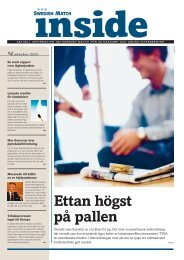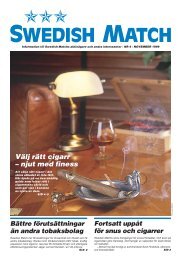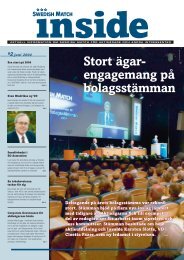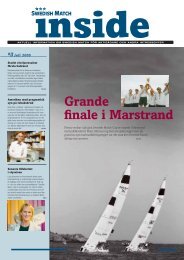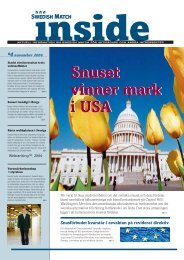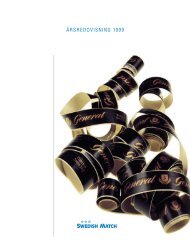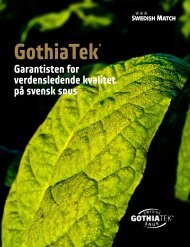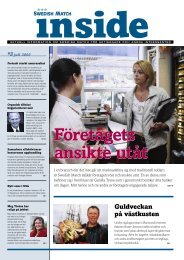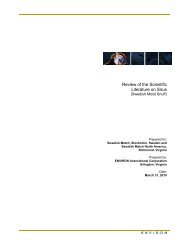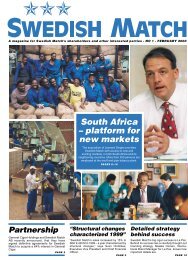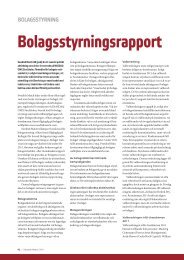No 5, 2009 PDF - Swedish Match
No 5, 2009 PDF - Swedish Match
No 5, 2009 PDF - Swedish Match
You also want an ePaper? Increase the reach of your titles
YUMPU automatically turns print PDFs into web optimized ePapers that Google loves.
Solstickan<br />
HHenry<br />
Ascher chose to send the Solstickan Award prize<br />
money to the Al-Shifa clinic, the health clinic in the<br />
Palestinian refugee camp. The two doctors practicing at<br />
the clinic receive a total of about 80 patients every day. The<br />
burden of their work is incessant and there is not much<br />
time to rest.<br />
Ascher says that today, less than two years after the<br />
clinic was completely destroyed by the Lebanese Army, the<br />
health clinic has ben rebuilt and with financial help from<br />
organizations such as the UN, Emmaus Björkå and the prize<br />
money from the Solstickan Foundation there is now access<br />
to clean water, medicine, equipment and material.<br />
Ascher, who served as a doctor in the camp for a total of<br />
14 months in the 1980s, says: “The war in 2007 was one of<br />
the worst battles since the civil war. Many families in the<br />
camp are now housed in emergency accommodation and<br />
most of them are in cramped conditions. The situation is<br />
causing frustration, concern and insecurity for children and<br />
adults.”<br />
When normal frames of reference, such as family, school<br />
and local society no longer function, the social protection<br />
network breaks down. The Al-Shifa health clinic therefore<br />
plays a central role in the people’s lives.<br />
“The clinic is important and doctors and nurses<br />
are doing as much as they can for all those who need<br />
treatment,” Ascher says.<br />
Many refugees have psychiatric problems after having<br />
been traumatized by what has happened to their loved<br />
ones and to their homes. These experiences also manifest<br />
themselves in several psychosomatic symptoms.<br />
“Chronic pains, headaches and stomach problems are<br />
common,” Ascher says. “In terms of purely physical injuries,<br />
burns and shrapnel damage, as well as infections are all<br />
common too. Doctors also perform basic operations and<br />
the clinic offers dentistry as well.”<br />
Everyday is a struggle and the refugees feel a great<br />
amount of hopelessness. Thanks to the <strong>Swedish</strong> doctors<br />
30 inside | may <strong>2009</strong>



